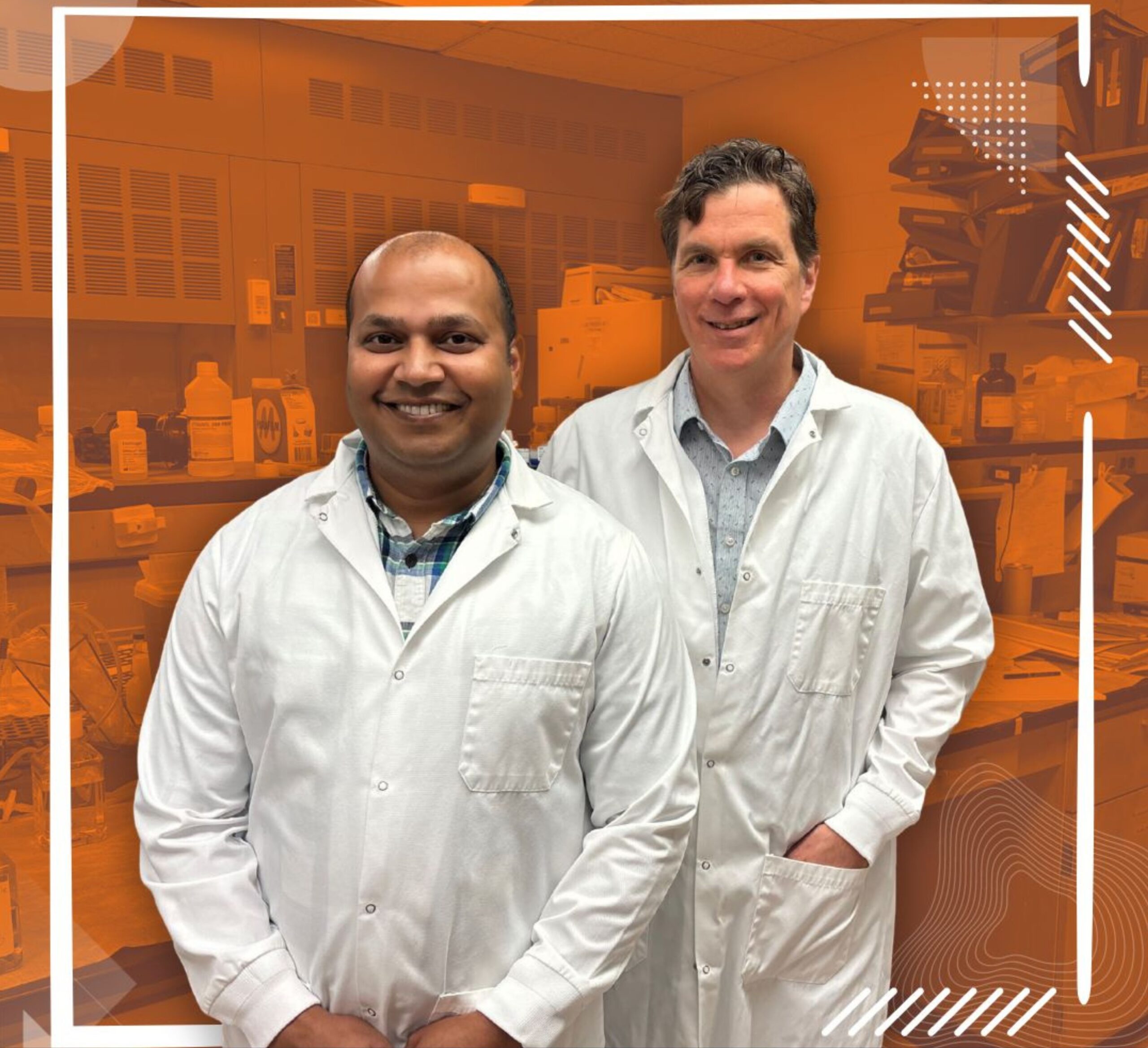Testicular cancer is a rare form of one of the world’s most devastating diseases. Most cases respond well to conventional treatments, but a team affiliated with the Cancer Center at Illinois (CCIL) has spent years working on ways to help patients who don’t have that success.
Their focus lies in studying cisplatin-resistant testicular cancer. Cisplatin has been the most common chemotherapy drug for testicular cancer patients since the 1970s.
“About 20% of patients don’t respond to that, and there are no backup therapies,” according to Michael Spinella, a CCIL member and professor of comparative biosciences. “Those people who don’t respond to cisplatin die from their disease.”
That’s where his lab comes in.

Left to right: Research Assistant Professor Ratnakar Singh
and CCIL member Michael Spinella
“We’ve been exploring what causes the resistance and either treatments that could reverse the resistance or replace the use of cisplatin,” said Spinella.
Finding alternative treatments involves understanding how testicular cancer develops. Most cancers form and progress because of an accumulation of DNA mutations, but not testicular cancer.
“Instead of mutations in DNA, there are epigenetic changes, which are modifications of the DNA or proteins associated with the DNA. It’s not a permanent mutation,” he said.
His team is working on the concept that testicular cancer is driven by an epigenetic mechanism and might be uniquely vulnerable to epigenetic drugs. Over two decades, they have developed two types of epigenetic drugs to treat cisplatin-resistant testicular cancer.
The first treatment focuses on DNA methyltransferase 3B, that is overexpressed in testicular cancer patients.
“Using a specific drug to inhibit DNA methylation can reverse cisplatin resistance, making cancer cells again vulnerable to traditional chemotherapy treatment. That is one of the biggest breakthroughs we had,” said Ratnakar Singh, a research assistant professor and a member of Spinella’s team for the last six years. Those findings were part of a small clinical trial conducted in collaboration with a team at Indiana University. Spinella’s lab is participating in a larger, nationwide clinical trial to test the same drug.
The second drug developed by Spinella’s team targets an epigenetic pathway that regulates histone methylation, which they found can drive cisplatin resistance.
“The histone methylation study is still in the preclinical stage, but we do have strong evidence that if we target this pathway, we can sensitize tumors to cisplatin,” said Singh.
Moving forward, the team continues its work in these areas while also exploring how environmental factors can play a role in testicular cancer development. A recent paper led by Spinella’s graduate student, Raya Boyd and published in collaboration with Spinella’s lab and two other CCIL researchers studied how exposure to per-and polyfluoroalkyl substances (PFAS) — a group of chemicals used in products like clothing, furniture, adhesives, food packaging, and non-stick cooking surfaces — can accelerate testicular cancer growth. You can learn more about that story here.
National Testicular Cancer Awareness Month
The American Cancer Society reports there will be about 9,760 new cases diagnosed this year.
Learn about detection, treatment options, and more here.
Editor’s Notes:
Michael Spinella is a professor of Comparative Biosciences at the College of Veterinary Medicine and Biomedical and Translational Sciences at the Carle Illinois College of Medicine. You can learn more about his lab and the rest of the team here.
This story was written by Jessica Clegg, CCIL Communications Team
